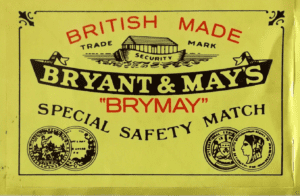Belloc the Ribald Believer
As mentioned in my last post, many of Hilaire Belloc’s intellectual left-wing friends could never understand how such an educated man as Belloc could believe in the teachings of the Catholic church, and moreover, believe in them in such a naive and childlike way. On one occasion an exasperated acquatenance demanded of Belloc, “How can you possibly believe the Jesuits when they tell you that communion bread turns into the body of Christ and the wine into his blood?” To which Belloc immediately responded, “If they told me it turned into elephant’s droppings, I would believe them!”
This anecdote displays at once Belloc’s unflinching Faith, but also his irreverent, or to some of his co-religionists, even profane attitude towards the Church. When in December 1910, Belloc decided he could no longer bear the compromises and, as he saw it, the collusion of party-politics and decided to resign as an MP, the Chancellor of the Exchequer, David Lloyd George approached Belloc in the House of Commons lobby, to say he was sorry to learn of Belloc’s decision. Belloc looked at his party colleague, declaiming, “Ah, but I shall rise again on the third day!” A response, Belloc later recounted with glee, “that shocked that little Welsh Non-Conformist.”
Perhaps one of Belloc’s most enjoyable theological humours is to be found in The Cruise of the Nona, where he muses on the historical evidence for Noah’s Ark having actually existed –
“I judge this by the pictures of the Ark I have seen upon match boxes, which I take to be upon the whole our best text, though late and somewhat corrupt. Such a craft could not have been handled with any satisfaction. It has no gear, only a sort of deck house; but it is famous, and of such antiquity that it should be revered…”
Belloc had no interest or desire to debate theological details and mistrusted all those who sought to ‘modernise’ Christianty: the Truth was the Truth, and the Faith was the Faith. You either believed or disbelieved and that decision was founded in the Soul of Man rather than in his Mind.

